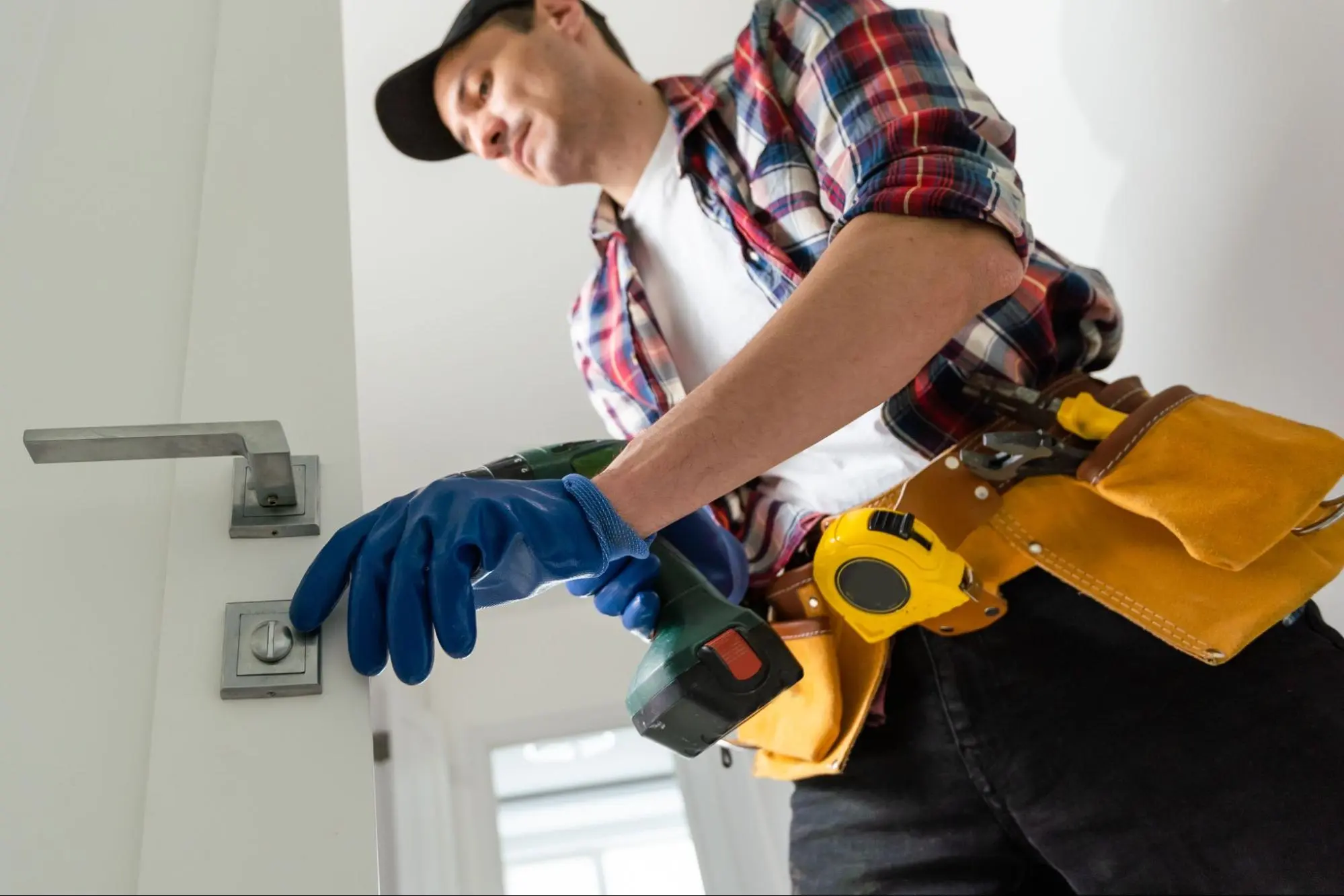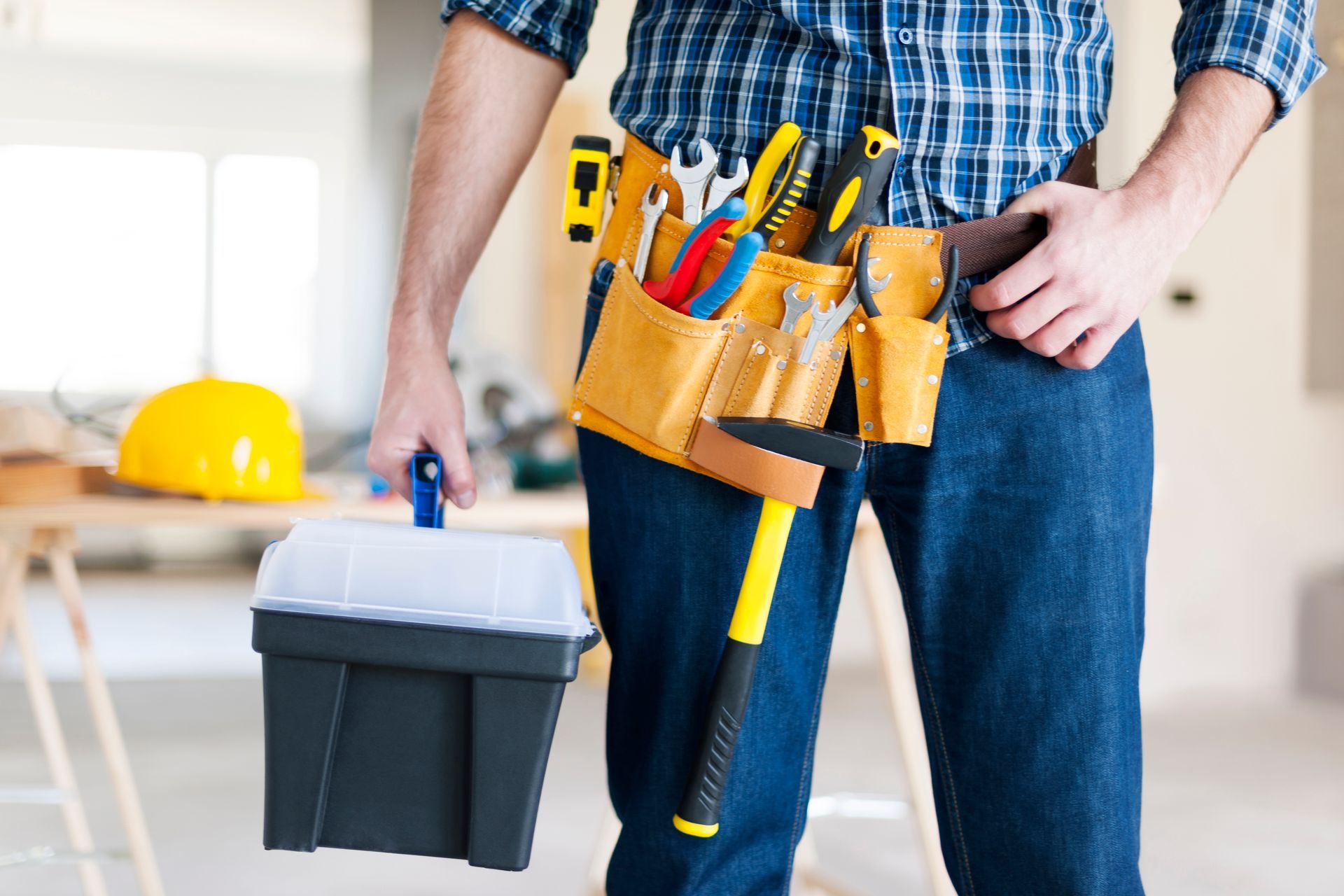Home emergencies can strike at any moment, from a leaking pipe to a sudden electrical issue, and knowing when to act quickly is crucial. Timely attention to urgent home repairs not only prevents small problems from escalating but also safeguards your home and family. For homeowners unsure where to start, searching for handyman services near me can connect you with professionals ready to handle emergency home fixes efficiently and reliably, ensuring that minor issues don’t turn into costly disasters.
Urgent Home Repairs

Knowing when a repair is urgent can save homeowners a lot of stress, money, and potential safety risks. Not all issues at home require immediate attention, but some problems demand swift action to prevent damage from worsening or causing harm. Understanding what qualifies as an urgent repair and the consequences of delaying them is key to maintaining a safe and functional home.
What Counts as an Urgent Home Fix?
Urgent home repairs are problems that, if left unattended, could lead to significant damage, safety hazards, or disruption of daily life. Some common examples include:
- Leaky Pipes or Plumbing Failures: A burst pipe or overflowing sink can quickly cause water damage to floors, walls, and personal belongings. Even minor leaks, if ignored, can lead to mold growth, compromising indoor air quality.
- Electrical Problems: Exposed wiring, frequent power outages, or sparking outlets pose serious fire risks and require immediate attention. DIY fixes can be dangerous, making professional intervention essential.
- Broken Doors and Windows: Damaged doors or windows can compromise home security and increase the risk of burglary. They may also worsen weather-related damage if left unrepaired.
- HVAC System Issues: Heating or cooling system failures during extreme weather conditions can disrupt comfort, and prolonged issues may damage the system further, leading to expensive repairs.
Urgent vs Non-Urgent Repairs:
- Urgent Repairs: Threaten safety, security, or cause immediate property damage. Examples: burst pipes, electrical faults, broken locks, HVAC failure.
- Non-Urgent Repairs: Cosmetic or minor functional issues that don’t pose immediate risk. Examples: loose cabinet handles, squeaky doors, minor paint touch-ups.
Recognizing the difference ensures homeowners know when to act fast and when it’s okay to schedule routine maintenance.
Risks of Delaying Urgent Repairs
Ignoring urgent home repairs can have several serious consequences:
Damage Escalation
Small issues often grow into larger, more expensive problems. A minor leak can turn into structural water damage, or a small electrical fault can develop into a fire hazard.
Safety Hazards
Delaying repairs can put residents at risk. Faulty wiring, broken steps, or leaking gas lines can cause injury or even life-threatening situations if not addressed immediately.
Higher Repair Costs
Waiting to fix urgent issues often increases repair costs. Emergency intervention is usually cheaper than dealing with major repairs caused by neglect. For instance, replacing a water-damaged floor is far more costly than fixing a leaking pipe early.
Common Situations to Call a Handyman Immediately

Home emergencies can occur unexpectedly, and knowing when to contact a professional handyman can prevent minor issues from turning into costly disasters. While some repairs can wait, urgent problems need immediate attention to maintain safety, functionality, and comfort. Below are the most common situations where calling a handyman is crucial.
Plumbing Emergencies
Plumbing problems are among the most urgent issues homeowners face. Some common examples include:
- Burst Pipes: A sudden pipe burst can flood your home, damaging floors, walls, and furniture. Immediate intervention is essential to minimize water damage and prevent mold growth.
- Clogged Drains: Severe blockages can lead to water backups, unpleasant odors, and potential pipe damage if left untreated.
- Leaking Water Heaters: Even minor leaks in a water heater can lead to flooding or inefficient heating, while untreated leaks can cause corrosion and expensive replacements.
Why professional help is essential:
Plumbing systems are complex, and DIY fixes can worsen the problem or cause additional damage. A licensed handyman or plumber can quickly identify the source, apply the correct solution, and prevent recurring issues.
Electrical Issues
Electrical problems require immediate attention due to safety risks:
- Power Outages: Unexpected outages can affect appliances and home security systems, requiring professional diagnosis.
- Exposed Wiring: Exposed wires pose a fire hazard and can result in severe injury if touched.
- Malfunctioning Outlets: Faulty outlets can damage electronics and increase the risk of electrical shock.
Safety concerns of DIY electrical fixes:
Attempting electrical repairs without proper knowledge is extremely dangerous. Professionals ensure that wiring and systems meet safety codes and prevent potential hazards.
Structural or Security Problems
Issues with your home’s structure or security should never be ignored:
- Broken Doors or Windows: Damaged entry points compromise safety, increase energy costs, and can allow pests or intruders inside.
- Faulty Locks: A broken lock puts your home at risk of burglary and should be repaired immediately.
Risks of delaying repairs:
Ignoring structural or security issues can lead to accidents, injuries, or increased vulnerability to break-ins. Quick action ensures both safety and peace of mind.
Heating, Cooling, and Appliance Failures
A malfunctioning appliance or HVAC system can quickly disrupt your daily life:
- HVAC Breakdowns: No heating in winter or no cooling in summer can make living conditions unbearable and may damage the system further if ignored.
- Refrigerator Failures: A broken fridge can lead to food spoilage and financial loss.
- Water Heater Issues: Lack of hot water affects hygiene and comfort, and leaks can cause water damage.
Importance of fast intervention:
Prompt handyman services prevent further damage, restore comfort, and often save money compared to extensive repairs or replacements caused by delays.
How to Decide If You Need a Handyman or a Specialist

Not every home repair requires a specialist, but some issues go beyond a handyman’s scope. Making the right choice can save time, money, and prevent further damage. Use the following guidance to determine whether you should call a handyman or a licensed professional.
Quick Checklist to Make the Decision
Before calling for help, consider these key factors:
- Complexity of the Task
- Simple repairs like fixing a leaky faucet, replacing a broken door hinge, or patching drywall can usually be handled by a handyman.
- Complicated projects like major electrical rewiring, structural modifications, or advanced plumbing require a specialist.
- Safety Risk
- If the repair involves potential hazards—electricity, gas lines, or heavy structural work—always prioritize safety and hire a licensed professional.
- Low-risk tasks such as painting, small furniture repairs, or installing shelves are typically safe for handymen.
- Urgency of the Repair
- Immediate fixes, like burst pipes or a malfunctioning lock, may require the fastest available professional, which could be either a handyman or specialist depending on expertise.
- Cost-Effectiveness
- For minor repairs, a handyman is usually more affordable and efficient.
- For high-stakes or code-sensitive work, hiring a specialist can prevent expensive mistakes or code violations.
When to Call a Specialist Instead
While handymen can handle a wide variety of tasks, there are situations where a specialist is the safer and smarter choice:
- Plumber: Complex pipe replacements, gas line issues, or sewer line problems.
- Electrician: Major wiring, circuit panel upgrades, or any work that could risk fire or electrocution.
- Contractor: Structural modifications, major renovations, or building code-sensitive projects.
By evaluating complexity, safety, urgency, and cost, homeowners can make informed decisions about whether a handyman is sufficient or a specialist is required. This ensures repairs are done correctly, safely, and efficiently.
Benefits of Calling a Handyman for Urgent Fixes

When home emergencies arise, time is critical. Hiring a skilled handyman promptly not only addresses the problem efficiently but also provides several long-term benefits that protect both your home and your peace of mind.
Fast Response
A qualified handyman can respond quickly to urgent home repairs, reducing the risk of further damage. Whether it’s a leaking pipe, broken lock, or malfunctioning appliance, immediate attention can prevent small issues from escalating into major problems. Quick intervention also minimizes disruption to your daily life, ensuring your home remains safe and functional.
Cost-Effective Solution
Delaying repairs often leads to more expensive consequences. For example, a minor water leak left unchecked can damage flooring, walls, and furniture, resulting in costly replacements. Hiring a handyman early is a cost-effective solution that prevents emergency repairs and helps you avoid unnecessary financial strain.
Professional Expertise
Handymen bring years of experience and practical knowledge to a wide range of home repair tasks. Their expertise ensures that urgent repairs are done correctly the first time, reducing the likelihood of recurring problems. From plumbing to electrical fixes and structural repairs, a professional handyman guarantees quality work and adherence to safety standards.
Peace of Mind
Knowing that urgent home repairs are handled by a qualified professional provides homeowners with invaluable peace of mind. You don’t have to worry about DIY mistakes, safety hazards, or delayed repairs. With a trusted handyman on call, you can rest easy knowing that your home is in capable hands.
Preparing Your Home for the Handyman Visit

A little preparation before the handyman arrives can make the repair process faster, smoother, and more cost-effective. By organizing the space and providing clear information, you ensure that the handyman can work efficiently and complete the job correctly.
Clear the Work Area
Before the handyman arrives, remove any obstacles around the repair site. Move furniture, personal items, or fragile belongings out of the way to give them full access. A clear workspace not only speeds up the repair process but also reduces the risk of accidental damage to your home or belongings.
Gather Information About the Problem
Provide detailed information about the issue you are experiencing. Take note of when the problem started, any patterns you’ve observed, and any previous attempts to fix it. The more accurate the information, the faster and more effectively the handyman can diagnose and repair the issue.
Ask for an Estimate Upfront
Before work begins, ask the handyman for a clear estimate of the cost and time required for the repair. Understanding pricing upfront helps you avoid surprises later and ensures the repair is both affordable and efficient. It also allows you to compare services if you’re considering multiple options.
Common Mistakes Homeowners Make During Urgent Repairs

Even in urgent situations, homeowners can unintentionally make mistakes that worsen the problem, increase repair costs, or create safety hazards. Recognizing and avoiding these common pitfalls ensures that urgent home repairs are handled efficiently and safely.
Ignoring Minor Issues
Small problems like a dripping faucet, a slightly loose door, or a minor electrical flicker may seem harmless at first. However, ignoring these issues can allow them to escalate into larger, more expensive emergencies. For instance, a minor leak left untreated can cause water damage, mold growth, or structural problems. Prompt attention—even to small issues—prevents costly complications down the line.
Attempting Risky DIY Fixes
Many homeowners try to fix urgent problems themselves to save money. While DIY repairs may seem convenient, they can often make the situation worse, especially when it involves electricity, plumbing, or structural components. Risky DIY fixes can lead to injuries, fire hazards, or more extensive damage, ultimately costing more to repair than hiring a professional in the first place.
Choosing Unlicensed Handymen
Hiring an unlicensed or inexperienced handyman may seem like a cheaper option, but it comes with significant risks. Unlicensed workers may lack the proper training, tools, or knowledge to handle urgent repairs safely. This can result in poor-quality work, recurring problems, or even violations of local building codes. Always prioritize licensed, reputable professionals to ensure your home is repaired correctly and safely.
Conclusion
Recognizing urgent home problems early and calling a qualified handyman can save homeowners significant time, money, and stress. From plumbing leaks to electrical issues and broken doors, timely professional intervention prevents minor issues from escalating into costly emergencies.
FAQs:
1. What handyman services are available for urgent home repairs?
Handymen can handle plumbing leaks, electrical issues, broken doors or windows, HVAC problems, and minor appliance repairs, providing fast and reliable emergency solutions.
2. How do I know if a home repair is urgent or can wait?
Urgent repairs involve safety risks, potential property damage, or major disruption of daily life—examples include burst pipes, exposed wiring, and malfunctioning locks. Non-urgent issues are mostly cosmetic or minor.
3. Can I attempt DIY fixes for urgent problems at home?
While minor tasks may be safe, risky DIY attempts with plumbing, electrical, or structural repairs can cause injuries or more damage. Hiring a qualified handyman is safer and often more cost-effective.
4. How do I find reliable handyman services near me?
Look for licensed, insured, and experienced handymen with positive reviews. Local search terms like “handyman services near me” or recommendations from neighbors can help you find trusted professionals.
5. When should I call a specialist instead of a handyman?
For complex plumbing, major electrical work, or structural renovations, hiring a licensed plumber, electrician, or contractor is necessary to ensure safety, compliance with codes, and proper repair.